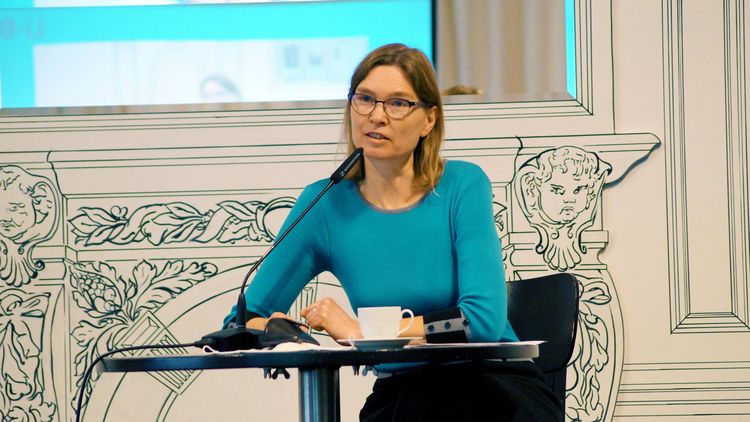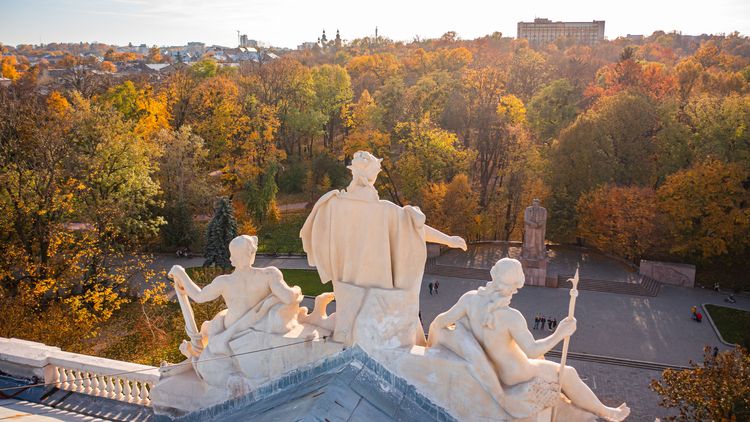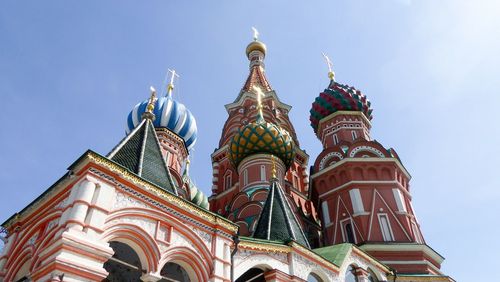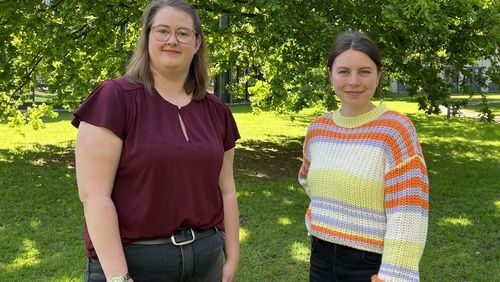Culture has long been seen as a unifying force among peoples. The war in Ukraine has destroyed this certainty, says Germanist Silke Pasewalck. In the interview, she talks about how even the great Russian authors are now being reassessed.
Ms. Pasewalck, you worked as a Germanist in Poland and Estonia for 15 years. What impact has the war had on people in Eastern Europe?
Through my contact with former colleagues I have witnessed first-hand the shock effect, the utter horror, triggered by the war. The fear of aggression from the Russian side, which I already observed in Estonia after the annexation of Crimea, has now become even more intense. However, this fear has not led to paralysis, but rather to a willingness to do everything possible to support Ukraine. Both Poland and Estonia have adopted a very resolute stance.
What are the consequences of the war for intercultural understanding?
In recent decades, our "Western" understanding of culture has been defined above all by the theories of cultural exchange and dialogue. Our shared history and our increasingly globalized present made it seem advisable to broaden our perspectives in order to understand each other. This understanding of culture and history is now being severely shaken, I fear. One could talk of a cultural earthquake. We can no longer fall back on these concepts to explain the current events. Because the hope that differences can be overcome through intercultural dialogue – with Russia, for instance, there had been intense cultural exchange up to now – is in danger of being lost as a result of this war.
So what should be done?
We cultural scientists must ask ourselves to what extent our concepts have been instrumentalized by the Russian side. In Eastern Europe I repeatedly encountered people who called my unconditional desire for dialogue naive. I now take these voices very seriously and believe we must develop concepts that can also explain this latest turn of events. We as a discipline must face this challenge. I am already observing how the concept of understanding is giving way to a concept of cultural conflict.
The Russian writer Vladimir Sorokin wrote in German magazine Der Spiegel that Putin is destroying the Russian cultural nation while respect for and interest in Ukrainian culture are growing. Have you also observed this?
Yes, I also see this shift. Here at the Federal Institute we are now developing an increased awareness of Ukrainian cultural history and literature. We certainly see it as a deficit that there has been such a strong focus on Russia up to now. It may sound harsh, but I think that Russian culture and literature now need to be re-read.
What do you mean by that?
For example, a reappraisal of Russian literature. The Ukrainian author and journalist Oksana Zabuzhko recently wrote an essay calling for such a revision. And Russian authors like Viktor Yerofeyev or Sorokin also say: we must not allow this centuries-long marginalization of Ukrainian culture and literature to continue, we must not go on like this. These calls are now becoming ever louder, also on the part of Ukrainian intellectuals.
So this is also about a new perception of great Russian authors like Tolstoy, Dostoevsky or Turgenev?
Exactly. I'm very curious to see how far they will be knocked off their pedestals. This is certainly happening on the Ukrainian side, that's what I hear and read.
What is the background to this?
Oksana Zabuzhko has identified patterns in Tolstoy's and Turgenev's texts that decouple violent acts from the perpetrator, shift the blame to a higher power, or elevate them to an act of purification, so that they form the basis for an understanding of evil. I still don't understand this fully myself, nor would I say that I completely agree with this view. But I do see that on the Ukrainian side an iconoclasm has set in as far as Russian literature is concerned.
What role are writers playing in the current conflict?
That is an important question. I am trying to document literary voices on the war, seeking them out in the culture sections of newspapers and magazines, and also in literary texts. We are the witnesses of an epochal upheaval, and as humanities scholars we must react to it.
And what do you observe?
Many Ukrainian authors are campaigning in the media against the war: Andrey Kurkov, president of PEN Ukraine, is giving interviews to British media, Serhiy Zhadan is recording songs with his band Sobaky in embattled Kharkiv. A number of Ukrainian authors live in German-speaking countries, and they are campaigning in the media there. Tanja Maliarchuk, who lives in Vienna, says she has become a "soldier with words" since February 24. She has abandoned a book project after two years of research to focus entirely on resistance using words. I think it's important to take note of this view: now is not the time for literature in the context of a multi-year research project that could result in a great novel. For her, this is the time for activist literature and even agitational texts. Another aspect is how German-language writers are reacting to the war. Various authors have expressed an initial position here – Antje Rávik Strubel, Durs Grünbein and Ingo Schulze, for example. But I think that the tectonic shifts caused by this cultural earthquake will only become apparent with time.
Experiences such as expulsion, war and violence had a lasting impact on many people in Europe in the 20th century. How are such experiences processed in literature?
Often this happens only generations later. In recent years younger contemporary authors who belong to the third, "grandchildren" generation have begun to deal with these inherited traumas in their work. They explore their family history or cultural heritage. The Berlin-based Ukrainian author Katja Petrowskaja, for example, traced her Jewish family history across Poland, Ukraine, Austria and Germany in her award-winning work Vielleicht Esther (Maybe Esther: A Family Story). The book is an exploration of her family's past, in which much has been concealed and forgotten. In recent years such memories have been dealt with in literature above all by the third generation, who never experienced that time themselves. These literary voices are the subject of one of my research projects at the Federal Institute on the theme "Shared Heritage as Subject and Narrative Process in Contemporary Literature". I would like to integrate more Ukrainian authors into this project in the future. I can also see, however, that a new generation with its own experiences is now growing up.
Will the ties between Eastern and Western European countries now grow stronger?
I very much hope so. The fact that more attention is now being paid to Ukraine is also an opportunity. In any event, the Federal Institute will intensify its cooperation with Ukrainian colleagues and also provide humanitarian aid. In all likelihood we will receive funds from the Federal Government Commissioner for Culture and Media so we can award scholarships and grants to academics and scientists and protect cultural assets.
Dr. Silke Pasewalck is a literary scholar (German Studies, Slavonic Studies) at the Federal Institute for Culture and History of the Germans in Eastern Europe (BKGE) at the University of Oldenburg. She was a DAAD Lecturer in German literature and language at Nicolaus Copernicus University in Toruń (Poland) from 2000 to 2005, and Associate Professor of German Literature at the University of Tartu (Estonia) from 2010 to 2018. Her research interests include contemporary literature, Baltic literary and cultural history, literature and memory, and cultural learning.
Interview: Ute Kehse





